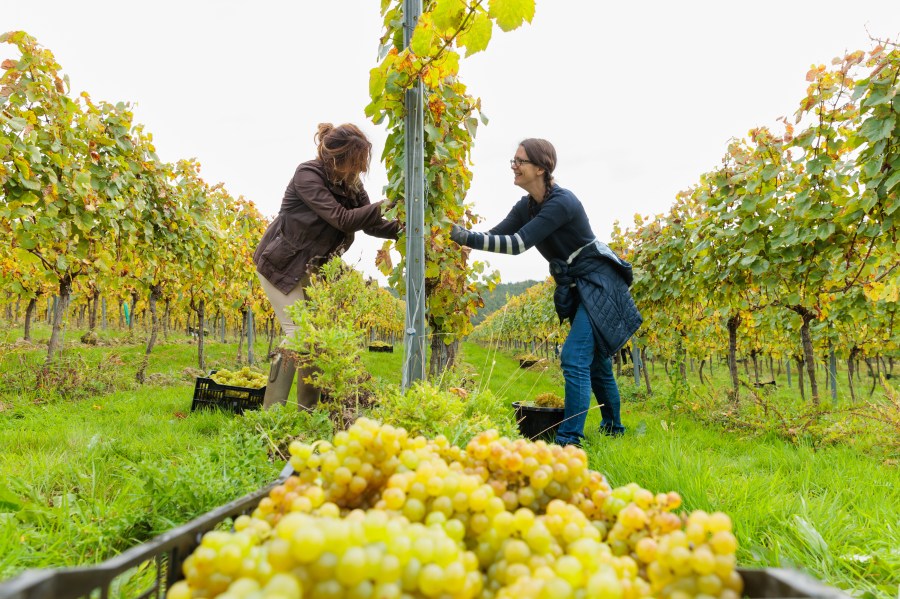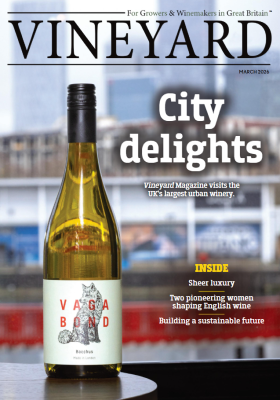Leonardslee Family Vineyards welcomed Vineyard magazine on the penultimate day of harvest 2025.
Leonardslee Family Vineyards is part of a multifaceted business with historic lakes and gardens as well as the Interlude restaurant, the first restaurant in West Sussex to achieve a Michelin Green Star. The vineyard is situated alongside a beautiful golf course and hotel, meaning there is literally something for everyone. With Penny Streeter OBE at the helm, the use of the word family in the name is truly reflective of not just the way that the business operates, but also indicates that Leonardslee is a destination for all.
In addition to a Michelin Star awarded in 2019 the award of the Michelin Green Star (January 2024) to the Interlude restaurant indicates just how much the ethos that the planet should benefit from their existence has been incorporated into all aspects of the business.
Pick up a bottle of wine from Leonardslee Family Vineyards and you are struck by the beautiful label design and its prominent swallow. This bird has a depth of meaning that becomes increasingly poignant as the story of Leonardslee unfolds. Penny Streeter OBE was born in Zimbabwe and went to school in South Africa before arriving in the UK. The swallow is a bird that makes an annual migration from South Africa to Sussex (the first county in which they land in the UK) against difficult prevailing winds and its journey is a struggle against the odds.
Struggling against odds is something that Penny Streeter understands. After some intense struggles Penny launched a business, the first of its kind in the UK, that supplied medical staff around the clock. This venture saw Penny and her mother operate the phones in twelve hour shifts from their own home whilst raising small children. Decades later Penny Streeter and her family now own Leonardslee Family Vineyards and Benguela Cove Wine Estate in South Africa. Benguela Cove is consistently voted one of the best vineyards to visit in the world. The winemaker at Benguela Cove Johann Fourie is also the winemaker at Leonardslee Family Vineyards proving the swallow on the label at Leonardslee certainly has hidden meaning behind the beauty.
Barry Anderson is the managing director at Leonardslee Family Vineyards. The 2025 vintage will be his fifth vintage at Leonardslee Family Vineyards and his 33rd in vineyards across the globe.
Leonardslee Family Vineyards was first planted in 2017 and there are over 70,000 vines that are of Chardonnay, Pinot Noir and Pinot Meunier varieties. There were originally two eighteen hole golf courses but one course was remodelled into a nine hole course and the remaining land is now where the vines are producing award-winning wines. The golf courses are both fantastically maintained and the day that Vineyard Magazine visited by 8.30am there was a gathering at the first tee and other members were already working their way through the 18 hole course. “The members have been very supportive of the change and the vineyard,” explained Adam Hatcher, Sales and Wine Experiences Manager at Leonardslee Family Vineyards. “Many members take part in the vineyard tastings and dining experience evenings,” added Barry.
There has been a golf course on the site since 1904 and a memorial plaque gives the names of the crew members of a Halifax Bomber that crash landed on the Golf Course in 1945 after a fire in the aircraft. This is a reminder that the present is ever intertwined with the past and the team at Leonardslee are very conscious of this connection. “In 2023 we planted some vines nearer the clubhouse and this will allow us to offer club members the opportunity to have greater involvement with the wines either by sponsoring a row or buying bottles from specific plots,” Adam added. It becomes increasingly clear that Leonardslee Family Vineyards is really an ethos and not just a name. The vineyard is designed as the central hub of a business that intends to benefit the local area in every way.
The vineyard blocks still carry the names of the old golf holes on which they are planted and the planting has been sympathetically undertaken to leave ancient oak trees growing in the vineyard. “We plan to leave the land better than we found it and this is an ethos that starts with Penny and is found in every one of the people involved in the business. When we first did soil inspections we found two very lonely worms but now the soil is full of life,” said Barry with a laugh. Leonardslee Family Vineyards have won numerous awards in 2025 including Gold at the WineGB awards and also took the trophy for Best Sustainable Wine of Great Britain for the 2021 Brut Reserve.
“The WineGB sustainability model is designed to increase success every year and therefore it recognises that it is a long term process. It means that every decision is carefully considered, for example why are we mowing? Is it for frost protection and airflow or is it for aesthetics?” In the vineyard Barry makes the powerful point that in years past the idea of the perfect vineyard would have involved a precision neatness that is only possible through the use of multiple spray programmes. “We have to change our idea of what a picture perfect vineyard looks like,” he said with dedication in his voice.
Barry pointed out that being sustainable is not just about soil it is about every aspect of the business but especially in its dealings with people. Throughout the visit everyone was willing to go just a little bit out of the way to help each other in their tasks, be it in the hotel or the restaurant or the vineyard everyone worked as a team. Harvest is a very busy time at any vineyard but there was an unmistakable atmosphere across the business, one of happiness.
Speaking of the 2025 harvest Barry said: “The weather was as good as you could find anywhere across the world.” Yields for the 2025 harvest will be slightly lower than the average but Barry explained that the quality is outstanding. “The yields this year were influenced by the poor weather from 2024. “We didn’t have a period of five days without rain during 2024 but we were very proud of the harvest we achieved in 2024 despite the lack of sunlight hours,” explained Barry.
Harvest at Leonardslee takes place in several stages. Part of the harvest is gathered by a team of commercial pickers and Leonardslee work with the team at VineWorks.
The harvest also involved volunteers who have often returned year after year to be part of the experience. Some pickers were taking part in their third vintage. The pickers are all conveyed to the vineyard by golf buggy and the fleet of buggies snakes across the golf course to reach the vines. The golf buggies are also used by the vineyard team for their visitor experiences including tours and specialist dining experiences.
The volunteers are overseen by the team from Leonardslee that includes Jaydon Parker, Nathan Thomson and Peter Smith. The team explained that the volunteers arrive in the morning and have breakfast and then travel to the vineyard and after a morning picking, the volunteers head back for a harvest lunch (with wine of course). Interestingly the team explained that as the number of volunteers that return is increasing, the volunteers are also becoming quicker. The commercial pickers pick 450 kg/full shift but the volunteers pick 2.5 tonnes a day which equates to about 100kg/half day shift. “Many of the volunteers have asked when the wines will be released and this shows how engaged they are in the vineyard and wines once they have experienced the process. The volunteers are all extremely conscious of the quality of the grapes they pick and that fits with our objective of creating the very best quality wine. We ensure the only grapes that make it into the bins are of the very best quality and we focus on this over quantity and the volunteers are very invested and diligent,” said Barry. The vineyard team really care about the volunteers and want to make sure they all have a special experience. Whilst we were in the vineyard the team were ensuring that there would be enough rows left unpicked so that the volunteers on the final day of picking would have a fulfilling experience. As he wandered up and down the rows with a warm smile on his face Barry said: “I love harvest it is my favourite time in the vineyard.”
Barry talked warmly about the grapes in the vineyard describing Chardonnay as the vineyards “hero grape.” Chardonnay makes up 65% of the 70,000 vines at Leonardslee and there are six clones in total. “Despite the disappointing rain in September all the Chardonnay is coming off clean,” said Barry.
The vineyard produces a Blanc de Blancs to illustrate the exceptional quality of the Chardonnay produced on the estate and both Nathan and Jaydon agree it performs exceptionally well at Leonardslee. It is therefore surprising that Barry should declare that it is Pinot Noir that is his favourite variety to work with not just here at Leonardslee but anywhere in the world. “Pinot Noir is the ‘heartbreak grape’ as it is the hardest grape to farm anywhere in the world. When you then add the difficulties of the climate in England and Wales there is no greater satisfaction than getting this grape right,” he said with a determined note in his voice.
Barry really appreciates the individual members of the team at Leonardslee Family Vineyards. He praises Penny Streeter for having the vision and belief that Leonardslee would be able to make outstanding quality wines and Barry also mentions the exceptional vineyard knowledge of Nathan Thompson and the amazing work ethic and passion of Jaydon Parker. Without any knowledge of how Barry had spoken about him Jaydon quietly informed me with heartfelt honesty: “Barry is always willing to help, he goes the extra mile for his staff. He took a chance on me when I wanted to change career and he gave me a start in the industry. He is truly the best person I have ever worked for.” Individuality appreciated and celebrated is a consistent theme in both the wines and the team itself and makes Leonardslee Family Vineyards a place that holds an unrivalled attraction.
Karen Phillips, one of the volunteers who was returning to Leonardslee to be part of the harvest experience explained: “Last year I picked the 2027 wine. I choose this vineyard to volunteer because I had tried the wine and enjoyed it. If you drink wine it is good to know how it is made.”
Peter Smith who now leads the vineyard tours and tastings explained that he first came to the vineyard to volunteer at harvest and now he is part of the staff at Leonardslee. He described some of the history of the area including its rich iron mining heritage which created the hammer ponds (used to dam streams to create water power for the iron industry) that can still be seen today across the Leonardslee Estate and the surrounding area. He also told of the folk lore of St Leonard the Dragon Slayer and how he defeated the dragon of the forest that surrounds the vineyard.
Leaving the legend of the dragon aside the forest provides a unique climate that has ensured the vineyard is protected from frost and is warmer than some of the surrounding land. “The vineyard has bougies and frost fans but these were last utilised in 2020,” said Nathan. The surrounding woodland does mean that the vineyard team have to work to keep out the deer and also to control the brambles in order to manage the threat of SWD which could be considered as the modern day dragon of the vineyard. “We have not seen too much damage from SWD but we are always conscious of keeping the species that may attract this vineyard pest under control,” said Barry.
The team at Leonardslee Family Vineyards are hoping to be able to build an onsite winery but so far the planning process has taken seven years and involved four redesigns. Currently Wiston Estate have allowed Johann and Leonardslee Family Vineyards the use of their West Sussex winery facilities so the grapes do not have far to travel. With his customary desire to give everyone the credit they deserve Barry is keen to point out: “The team at Wiston Estate have been great to work with.”
With Penny Streeter OBE and her family owning both Benguela Cove in South Africa and Leonardslee Family Vineyards and with Johann Fourie as the winemaker at both estates, the newly renovated nine bedroom hotel and the Michelin-Starred restaurant are in the unique position of being able to offer guests a vast array of award-winning wines that include grape varieties such as Syrah, Petit Verdot and Sémillon. “We currently have our first wines on their way to South Africa” said both Barry and Adam with pride in their voice. This is a great way to give a whole new audience an introduction to world class English sparkling wines.
Leonardslee Family Vineyards is a place of dedication. Dedication to the crafting of outstanding wines but beyond this there is a dedication to continued development of soil, of vine management and most importantly team development. It is often said that good wines start in the vineyard but at Leonardslee Family Vineyards it feels like good wine starts with the people who love the vineyard and from that great wine is flowing.
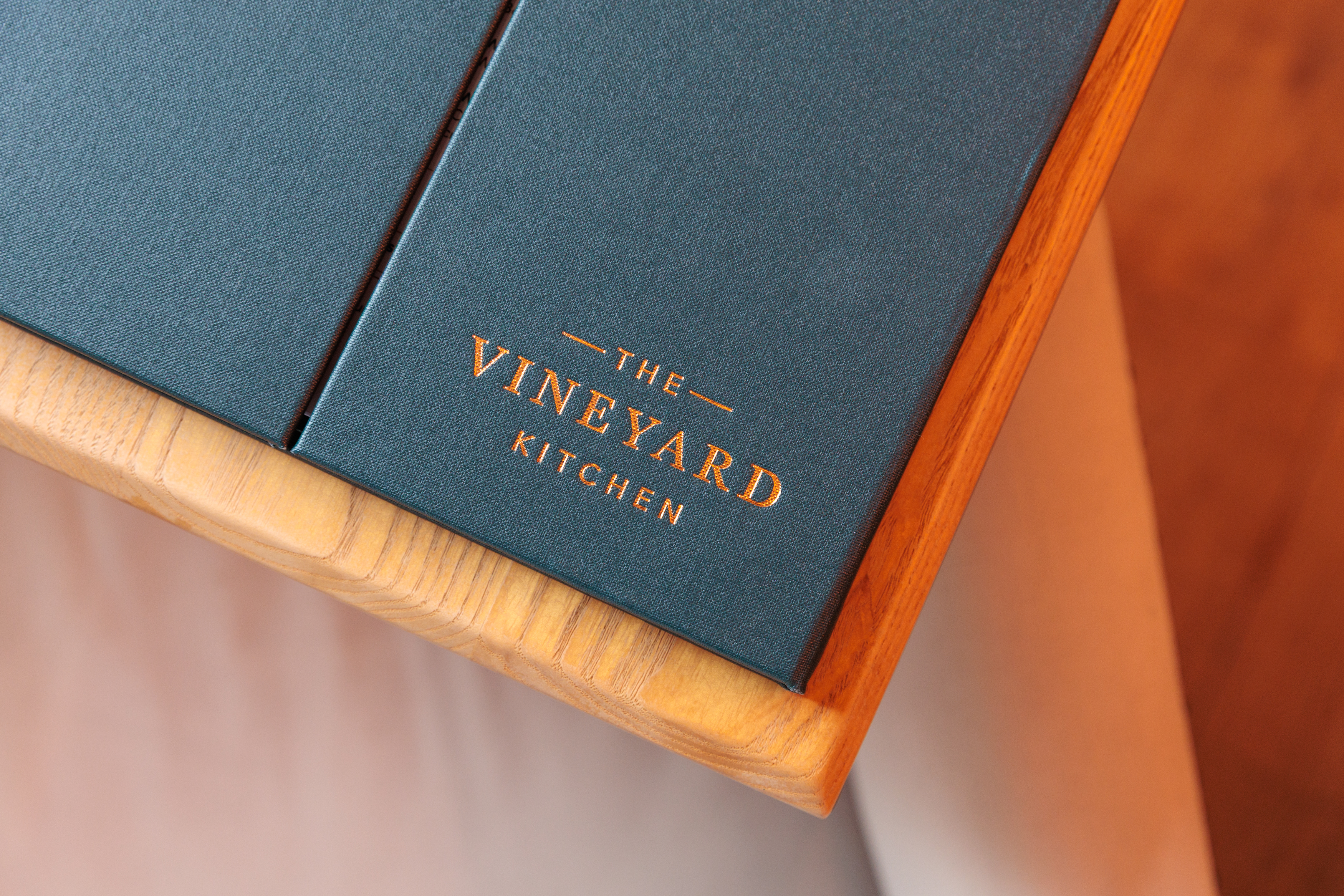
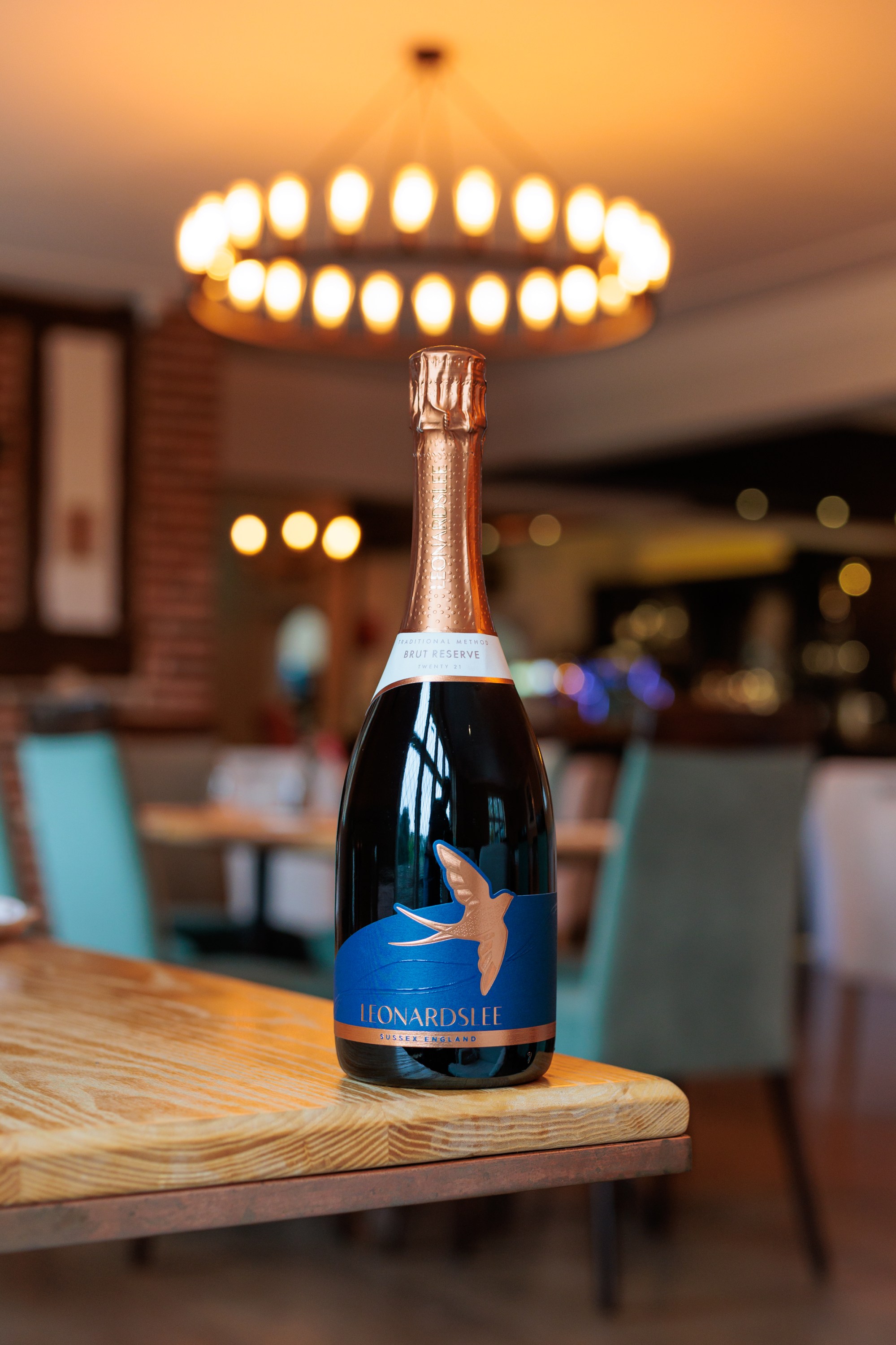
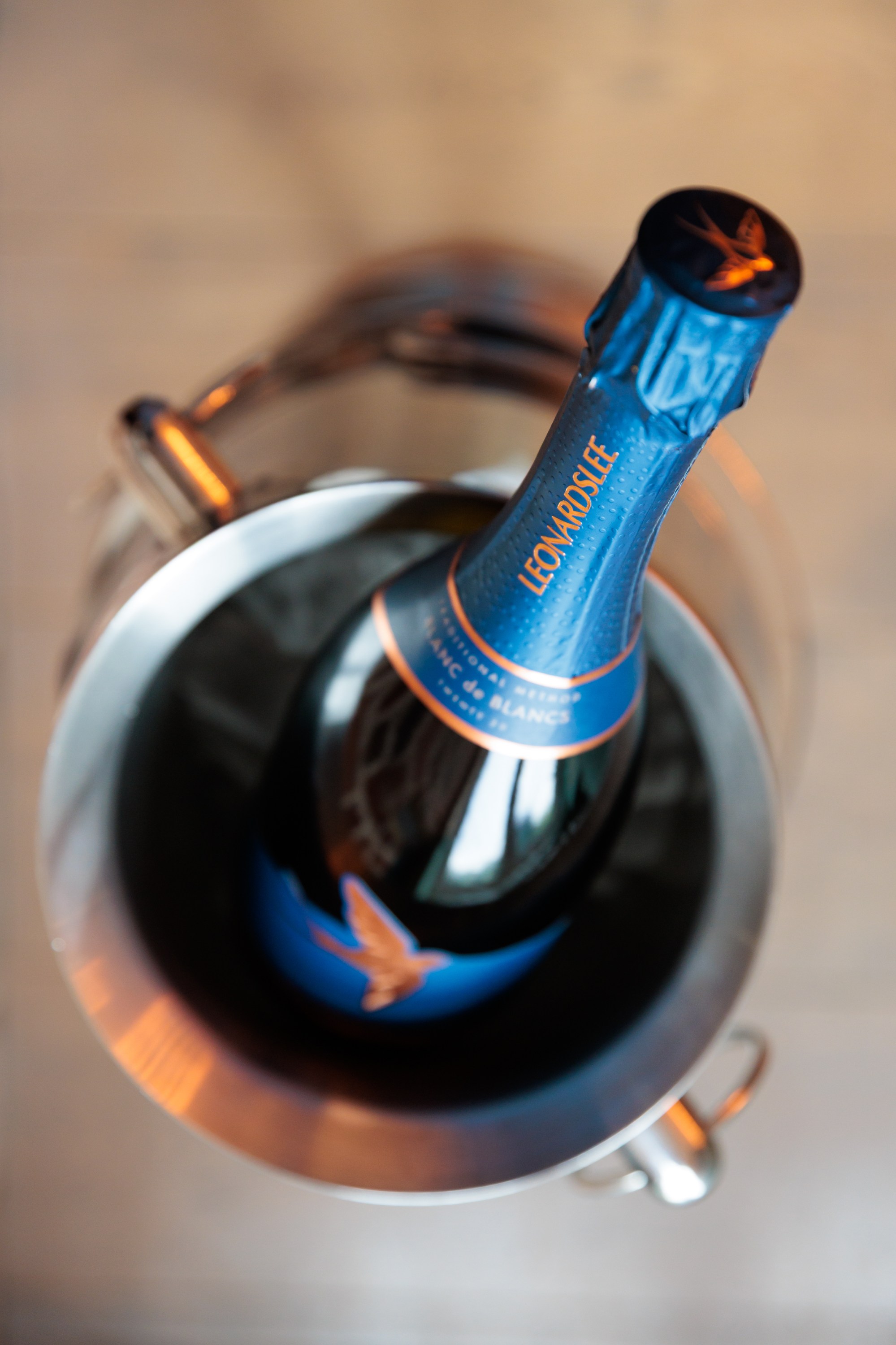
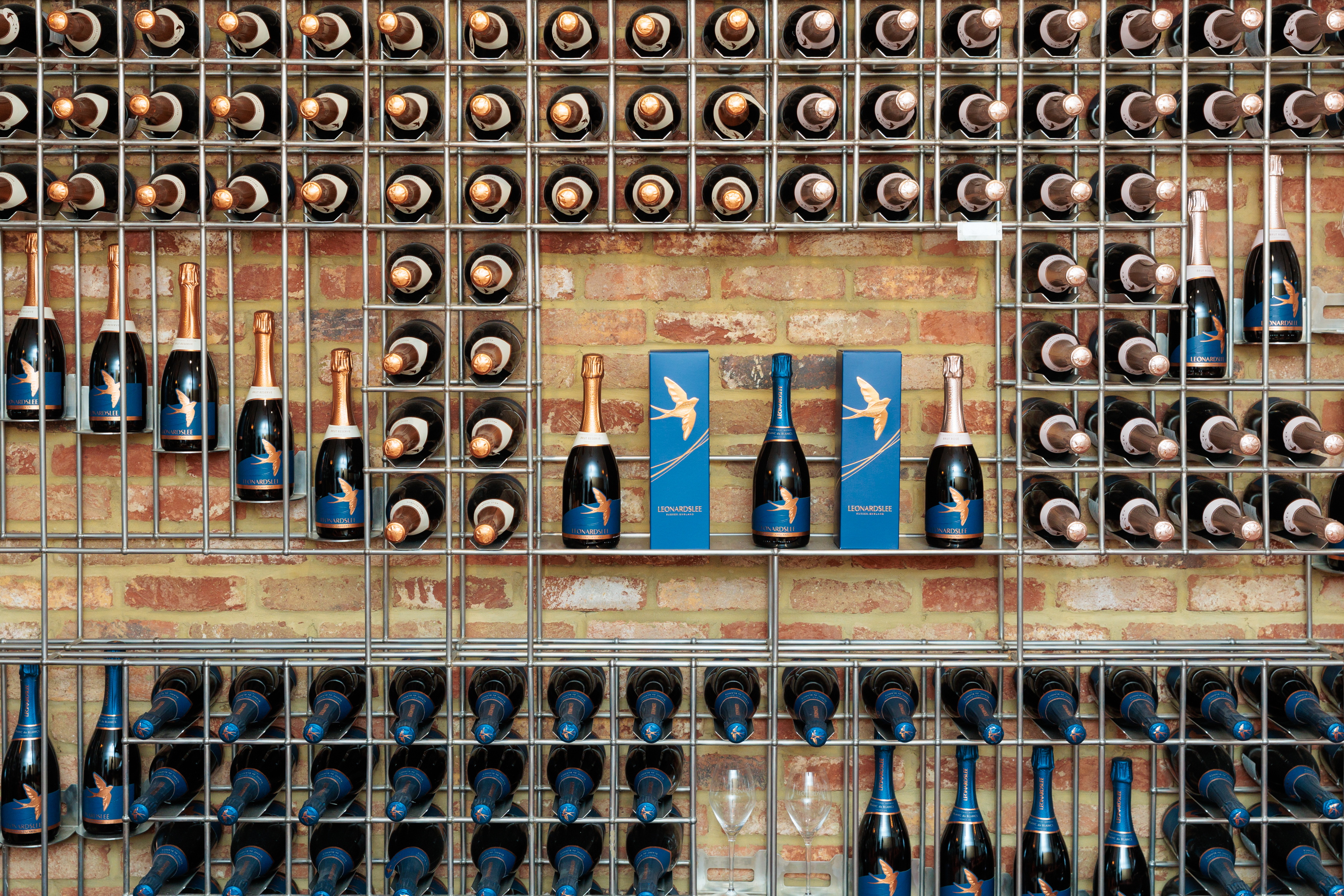
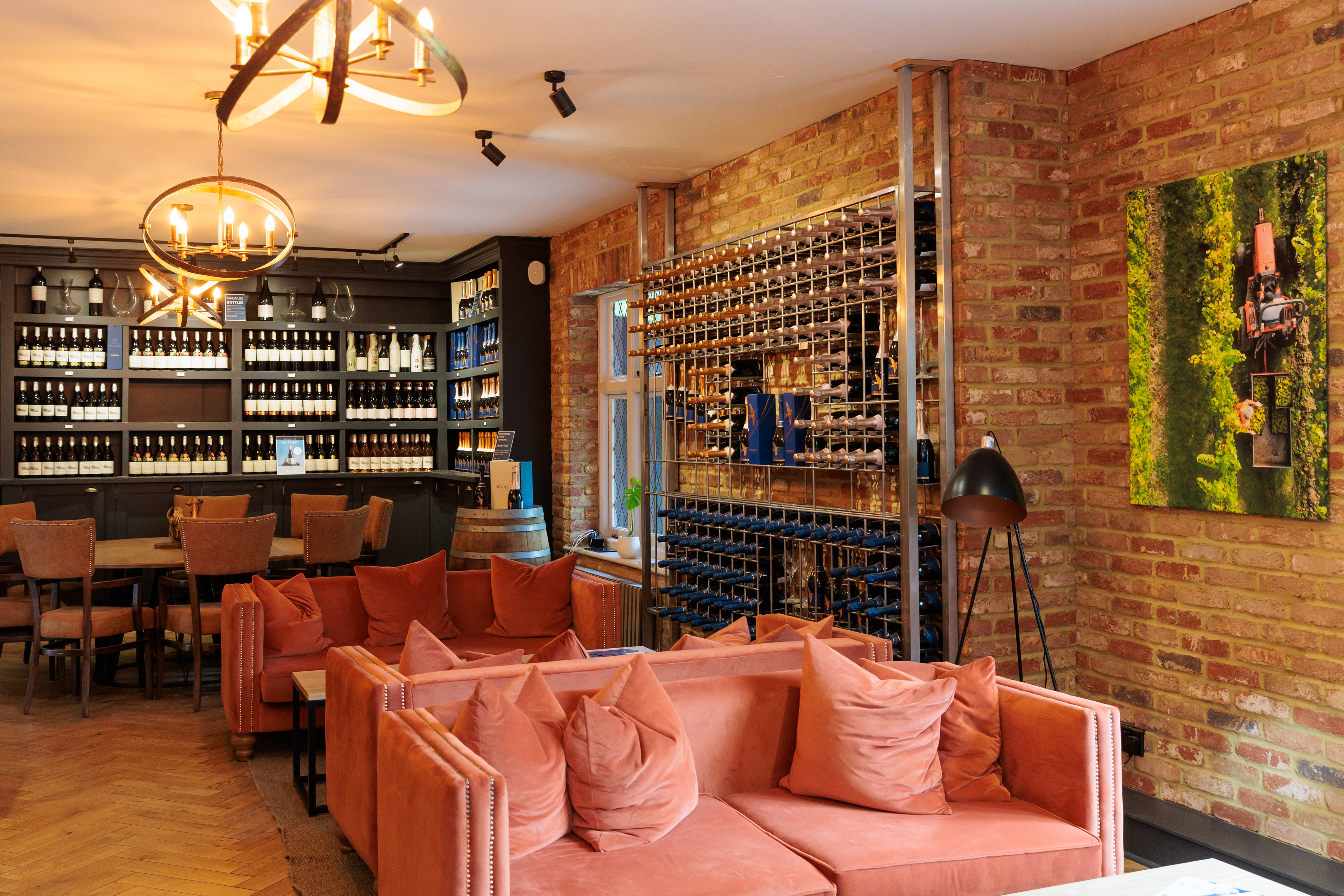
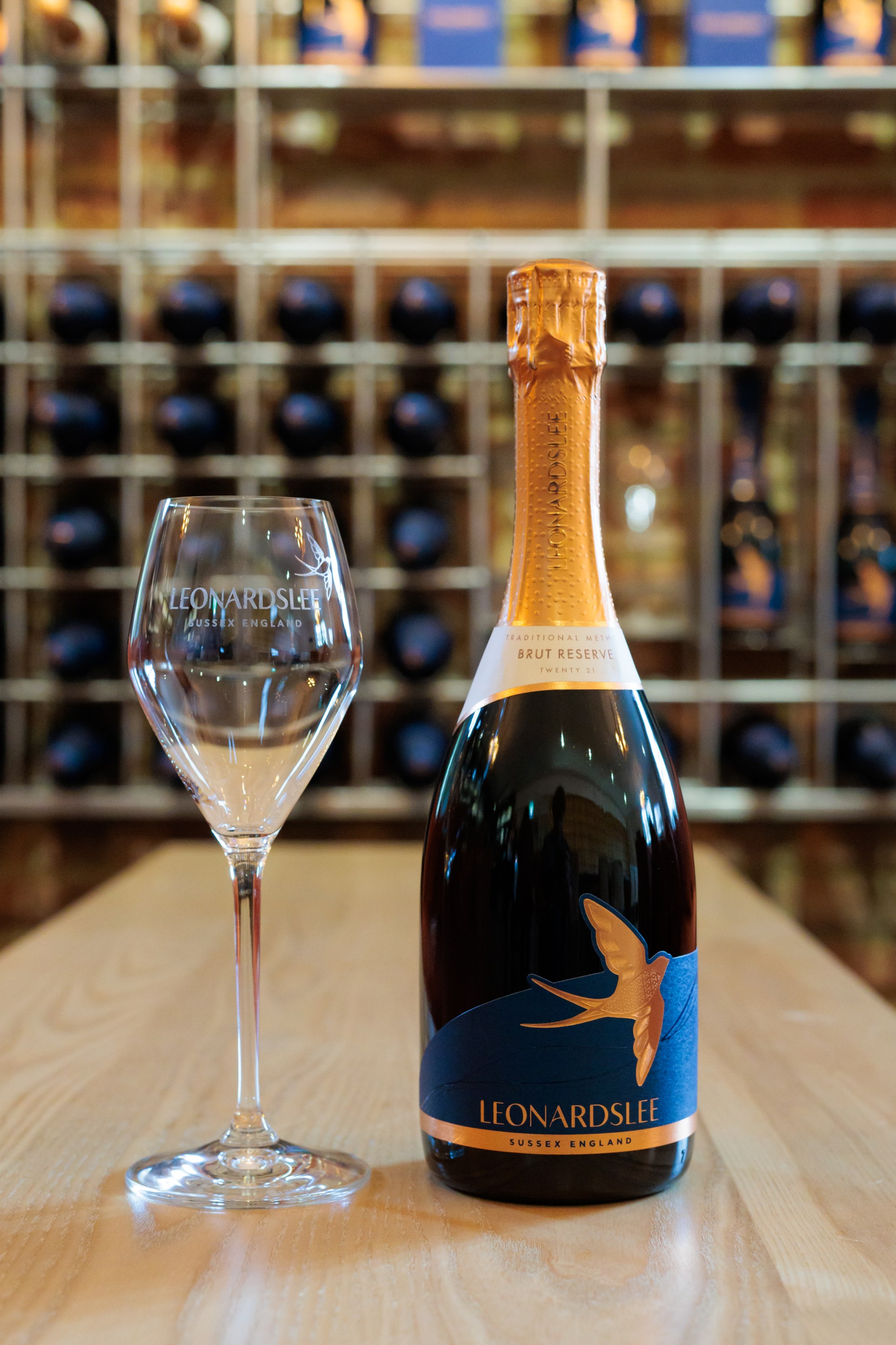
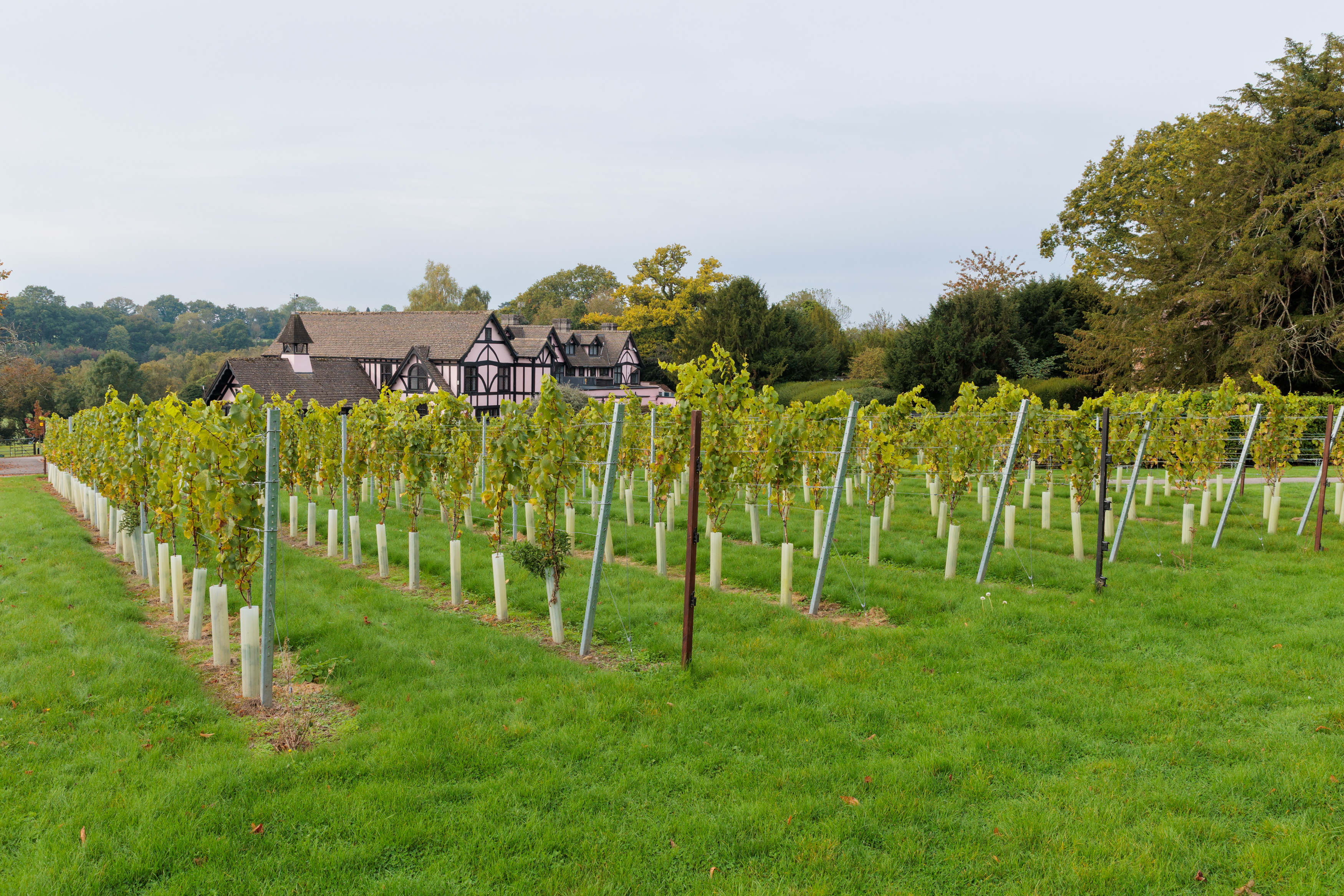
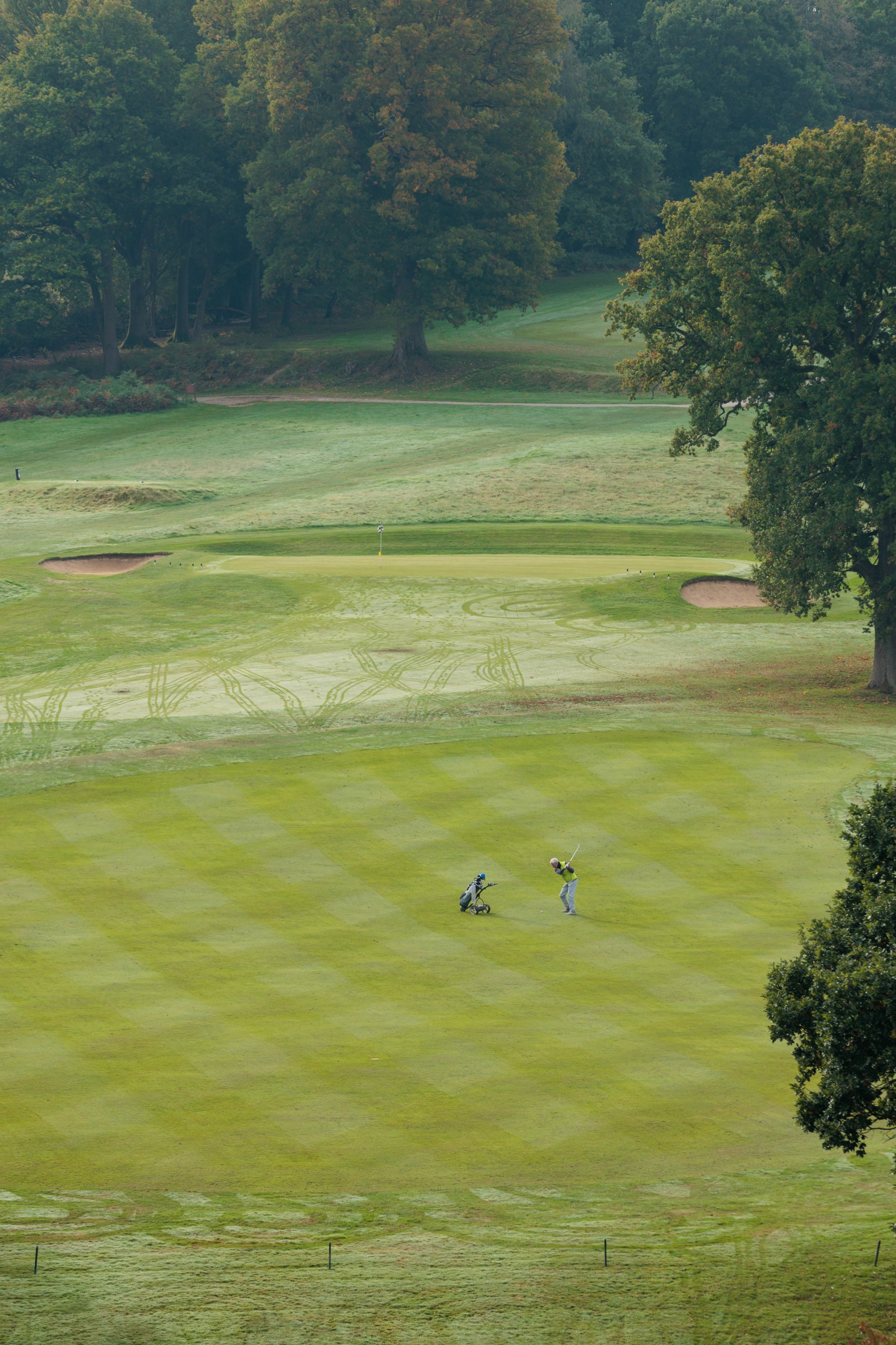
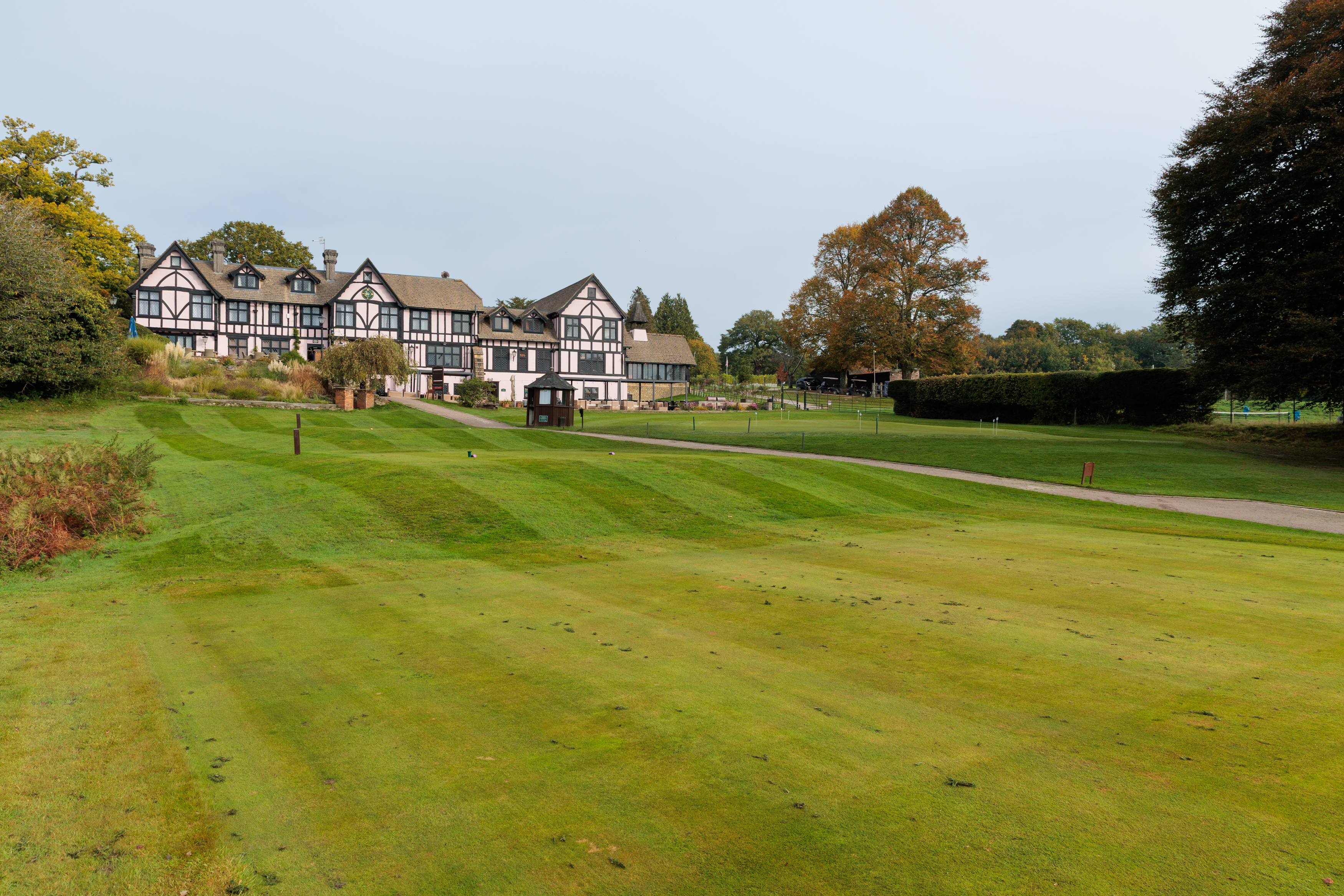
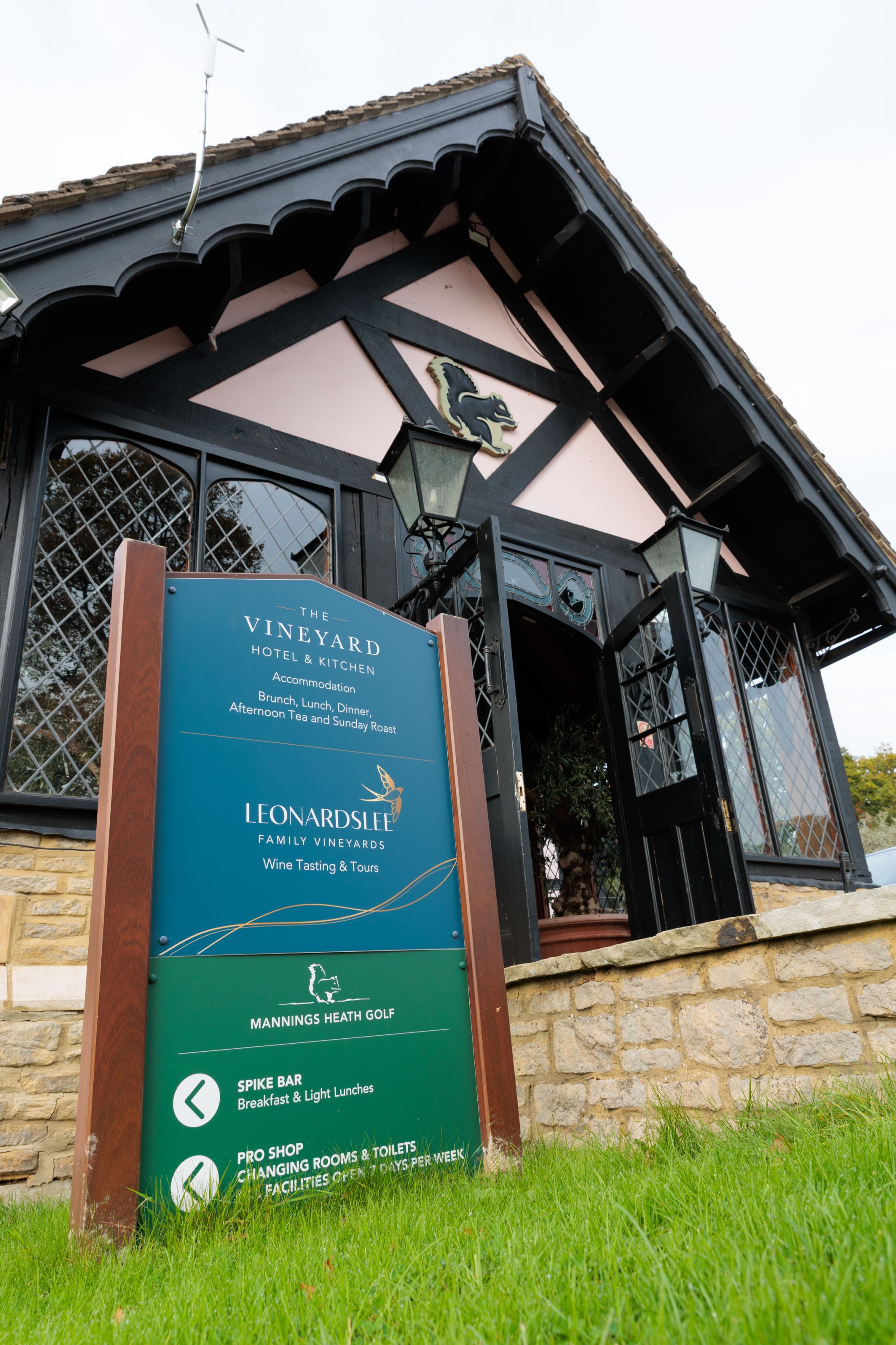
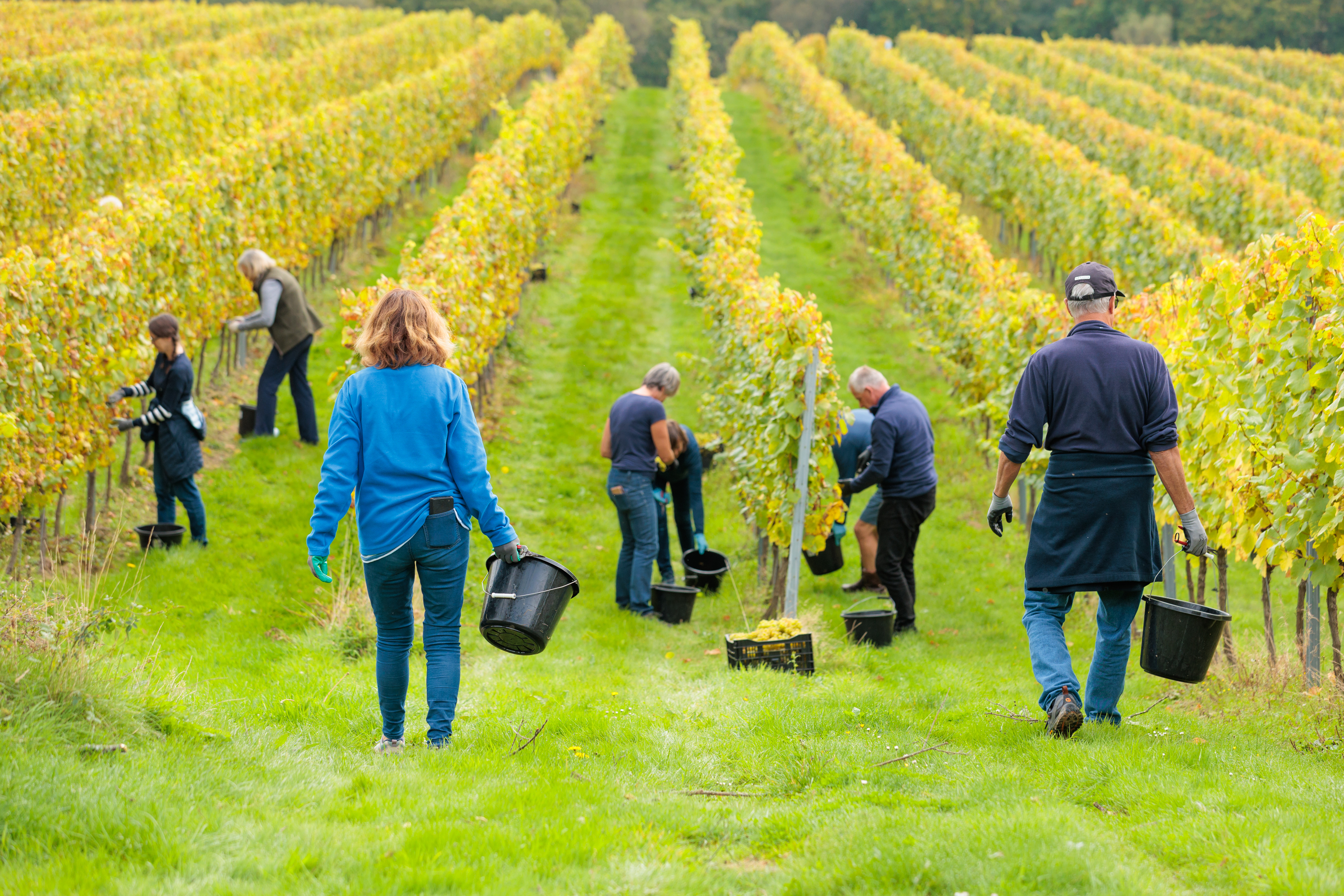
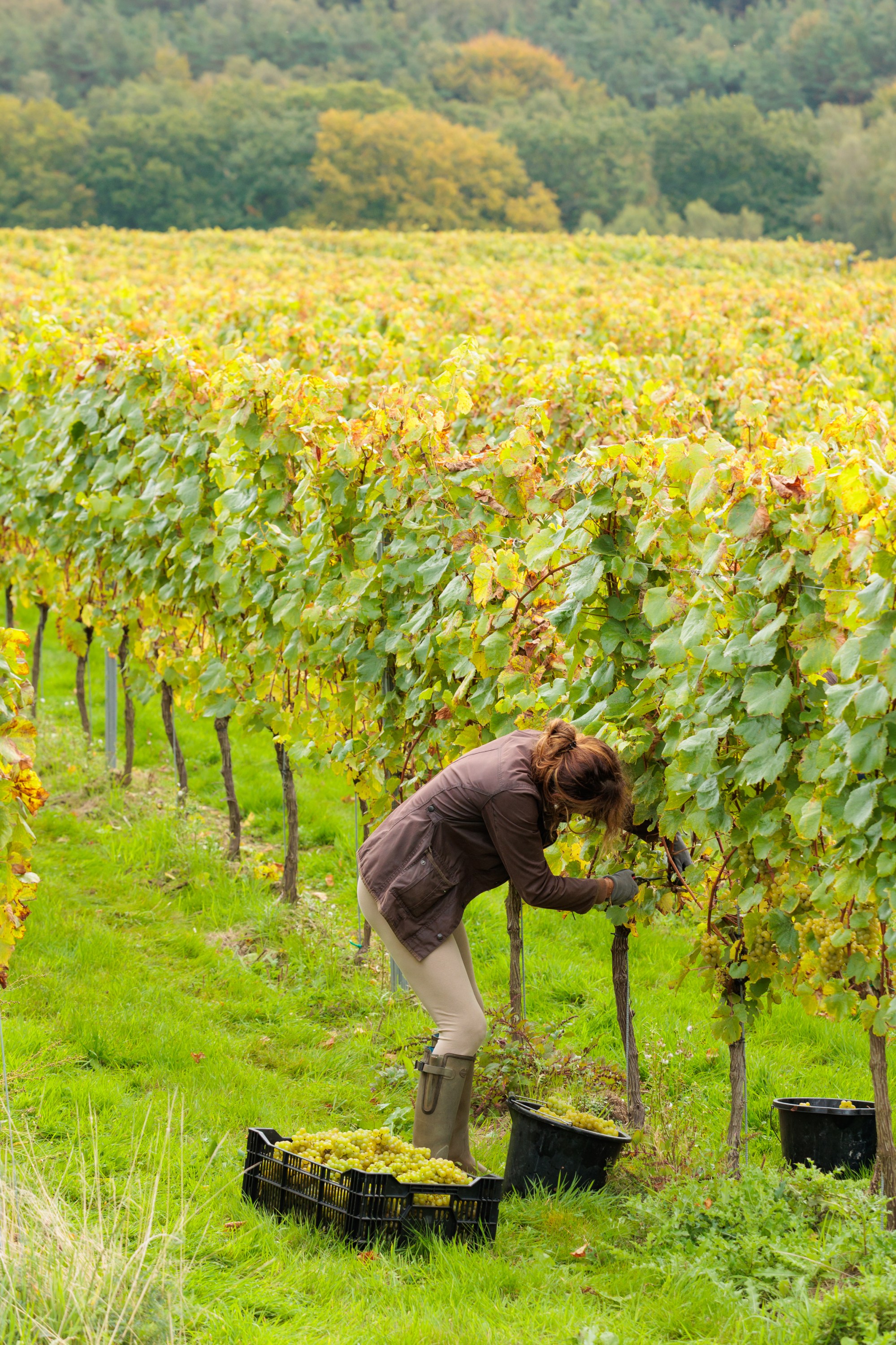
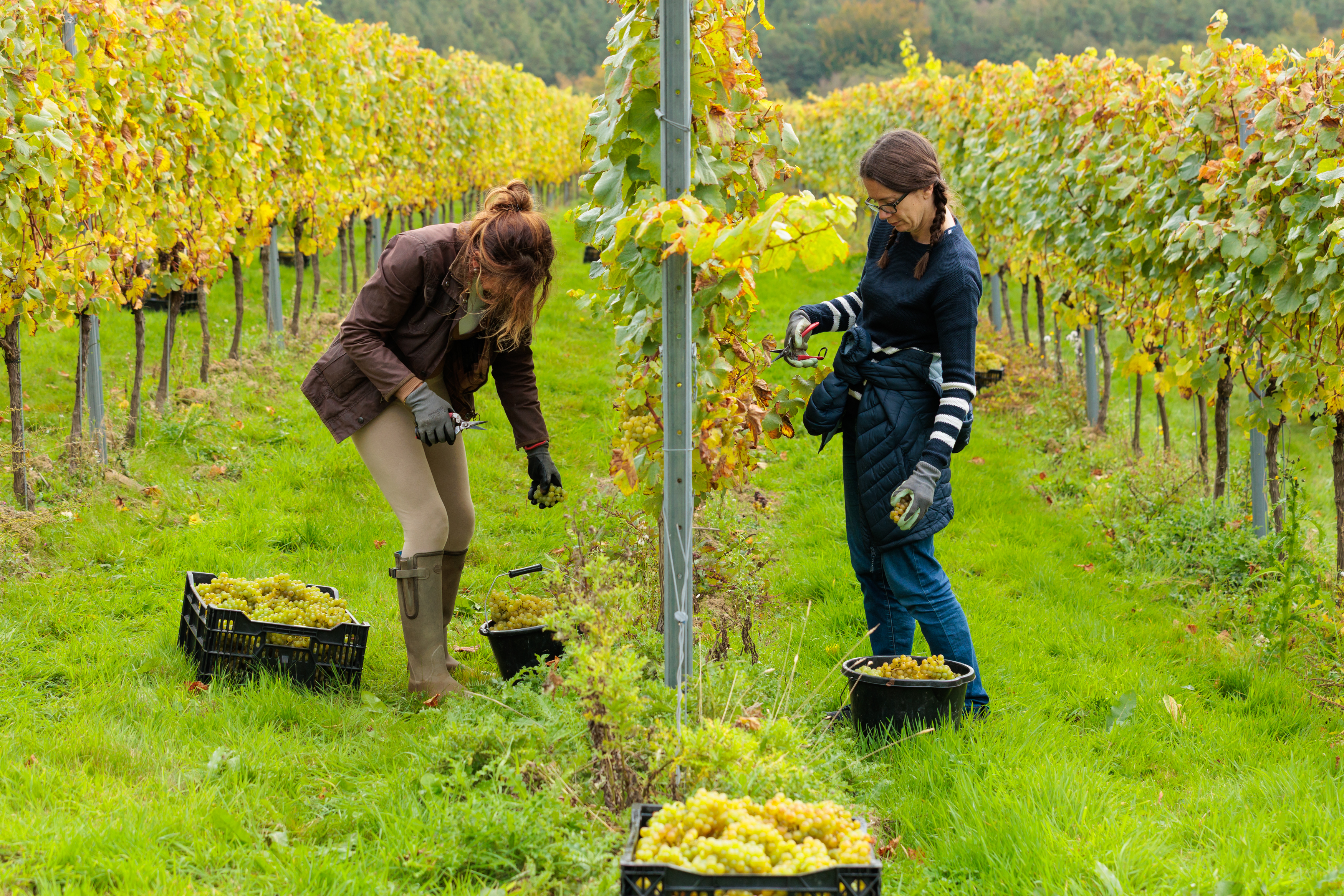
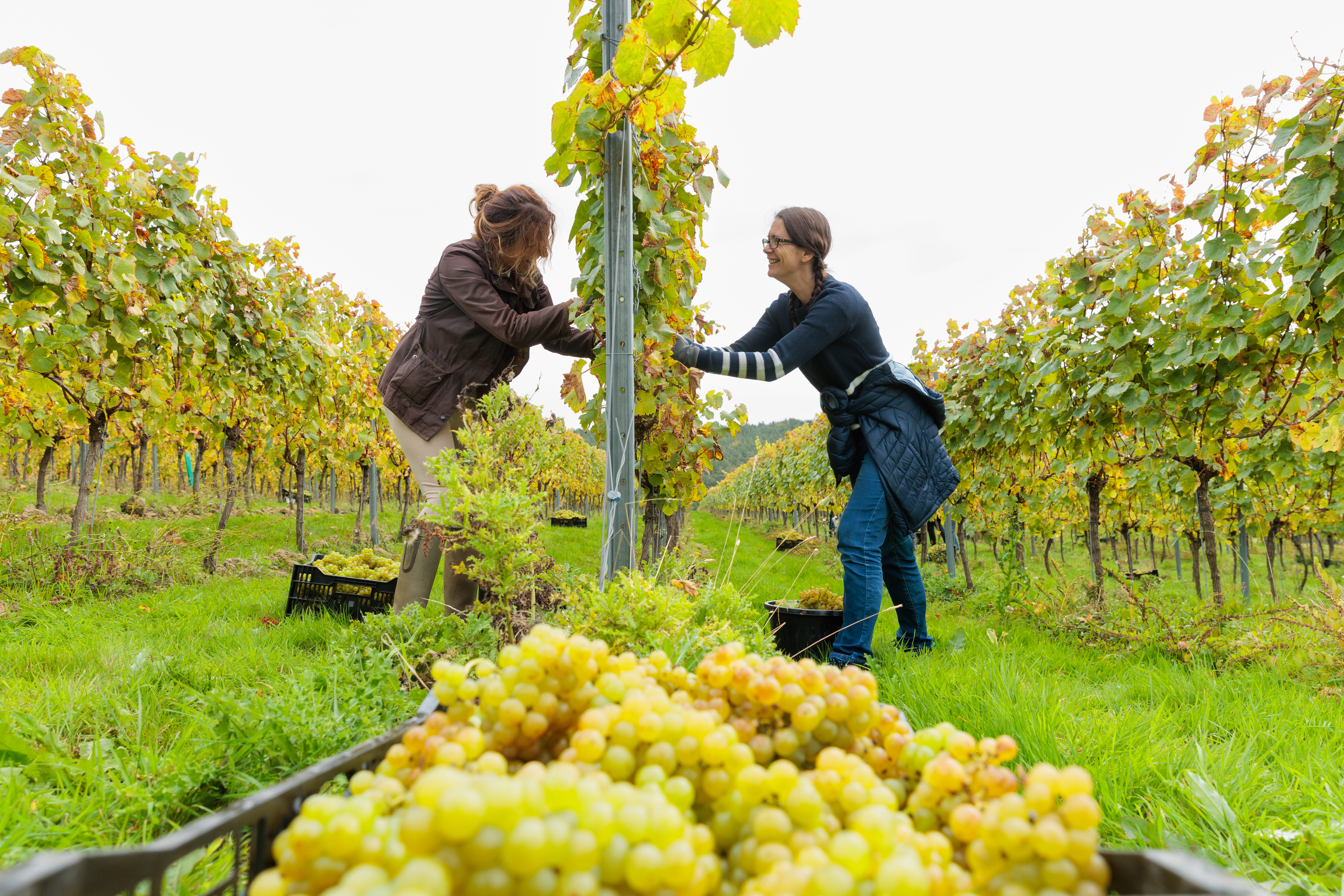
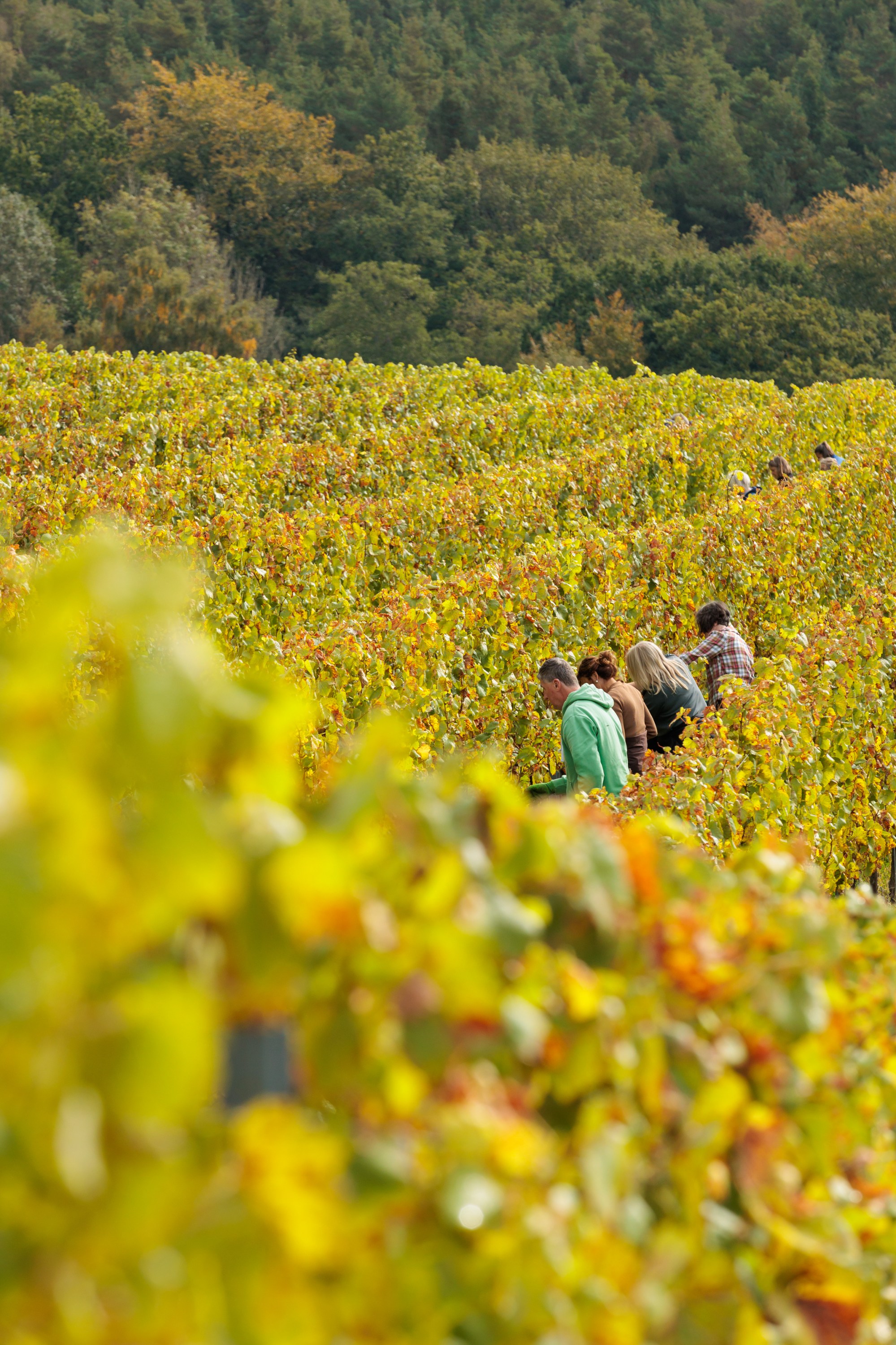
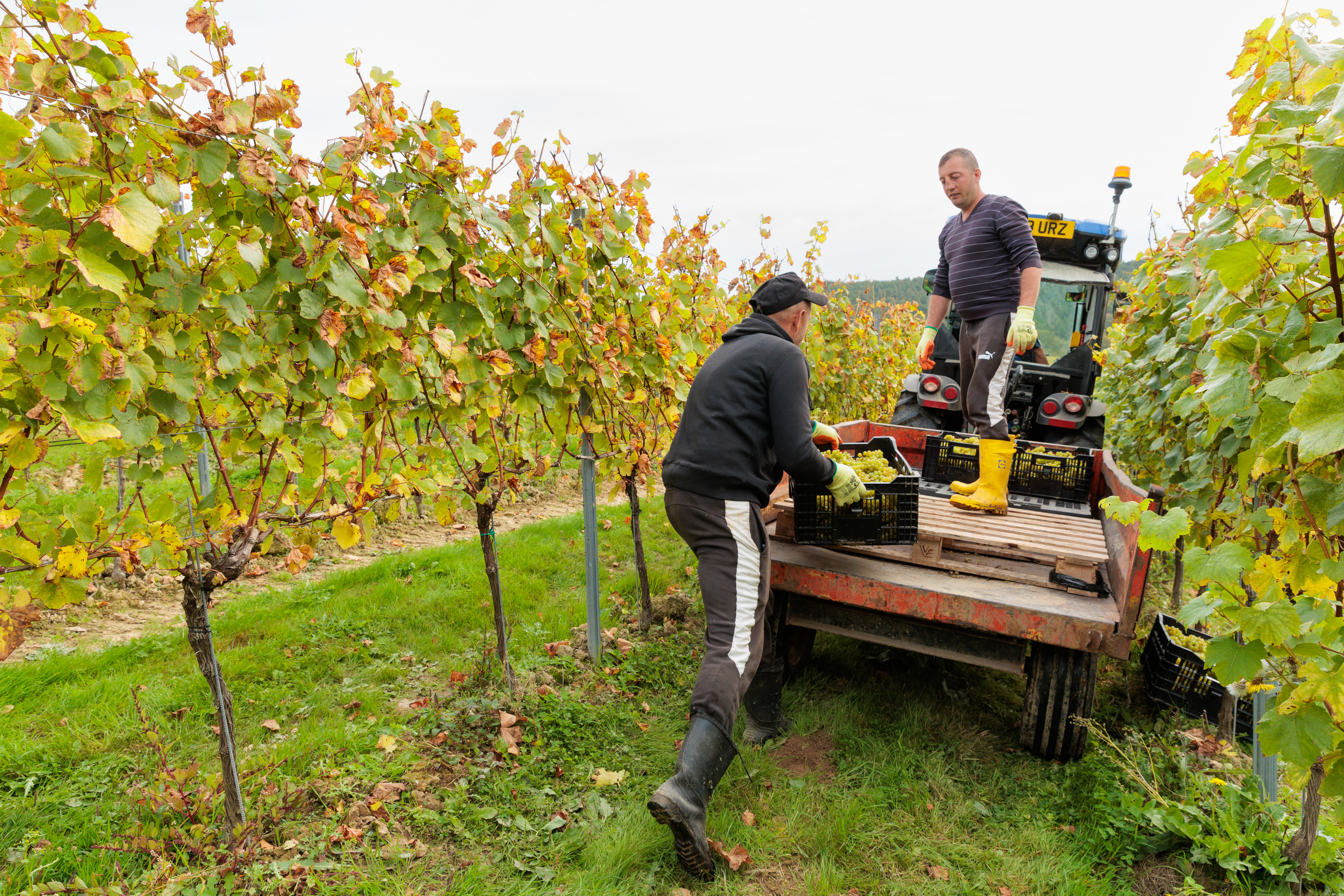
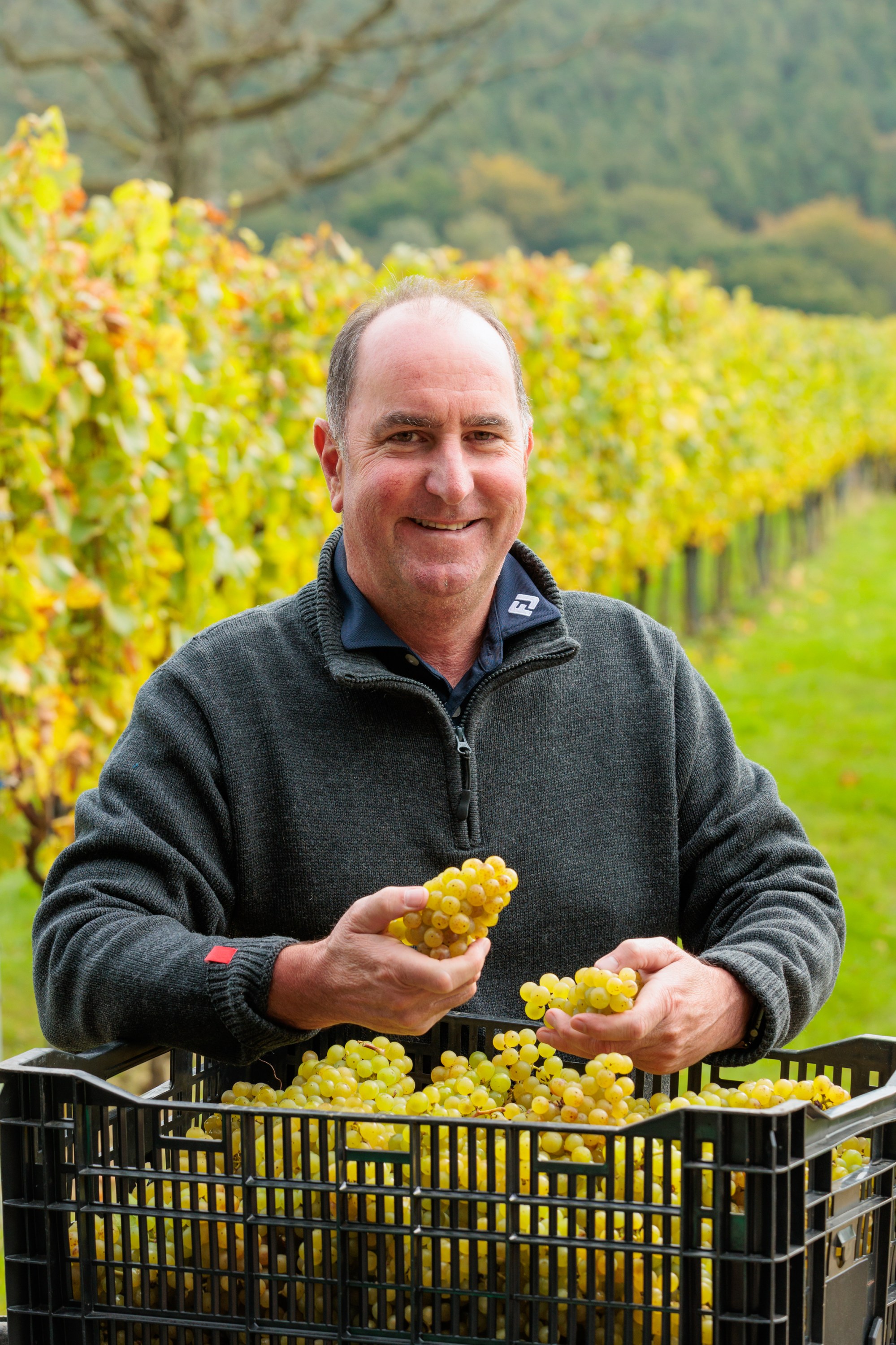
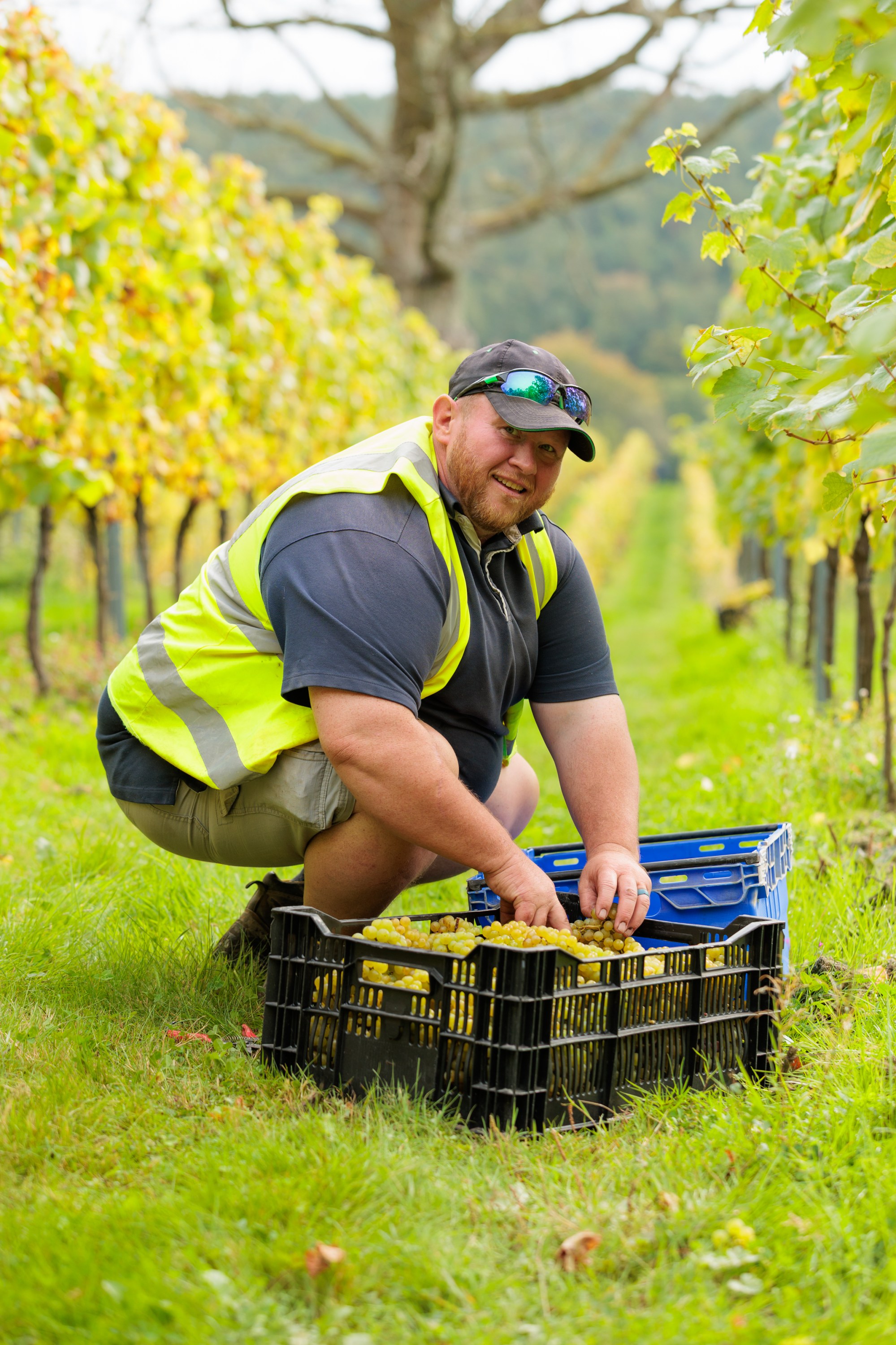
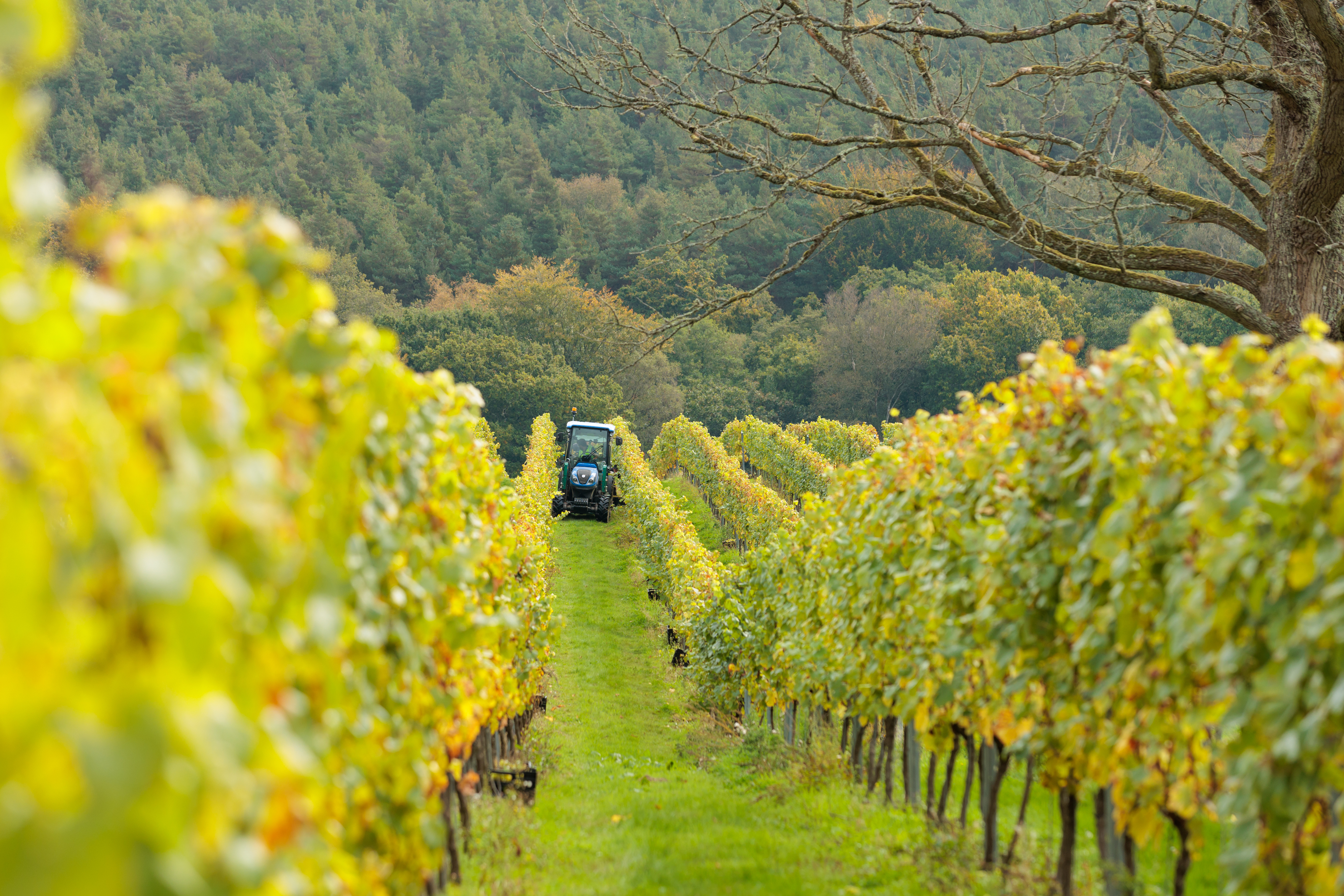
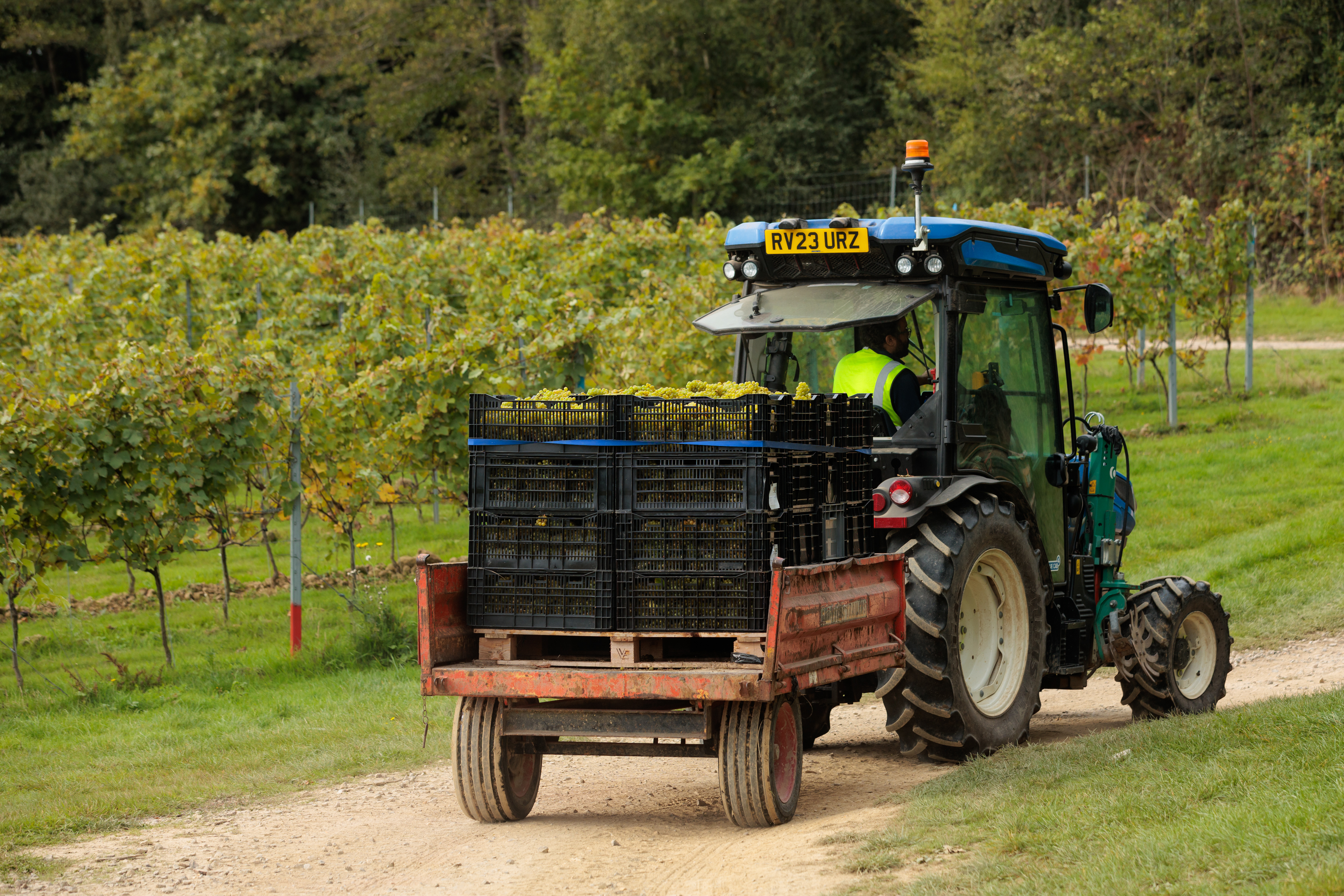
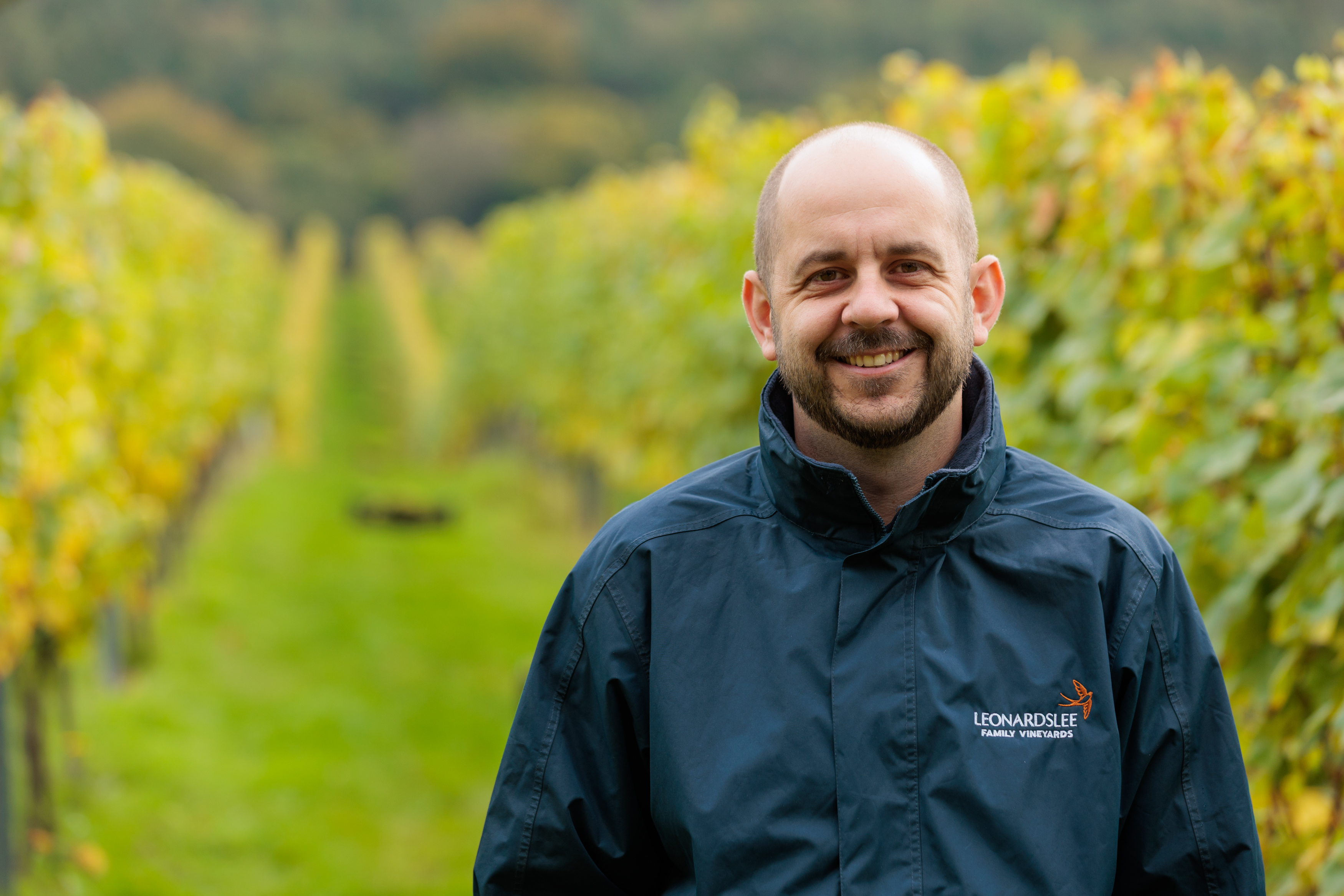
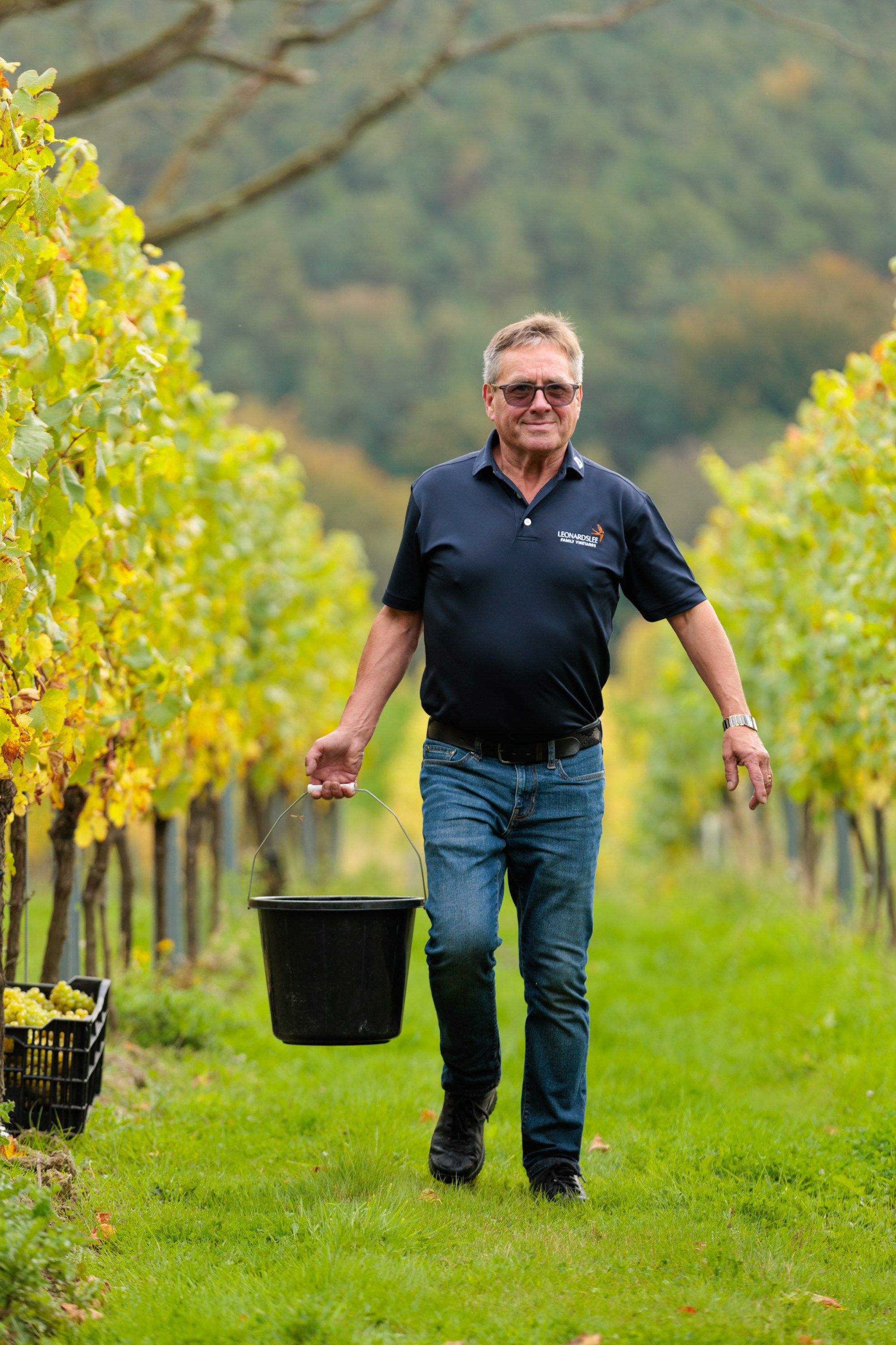
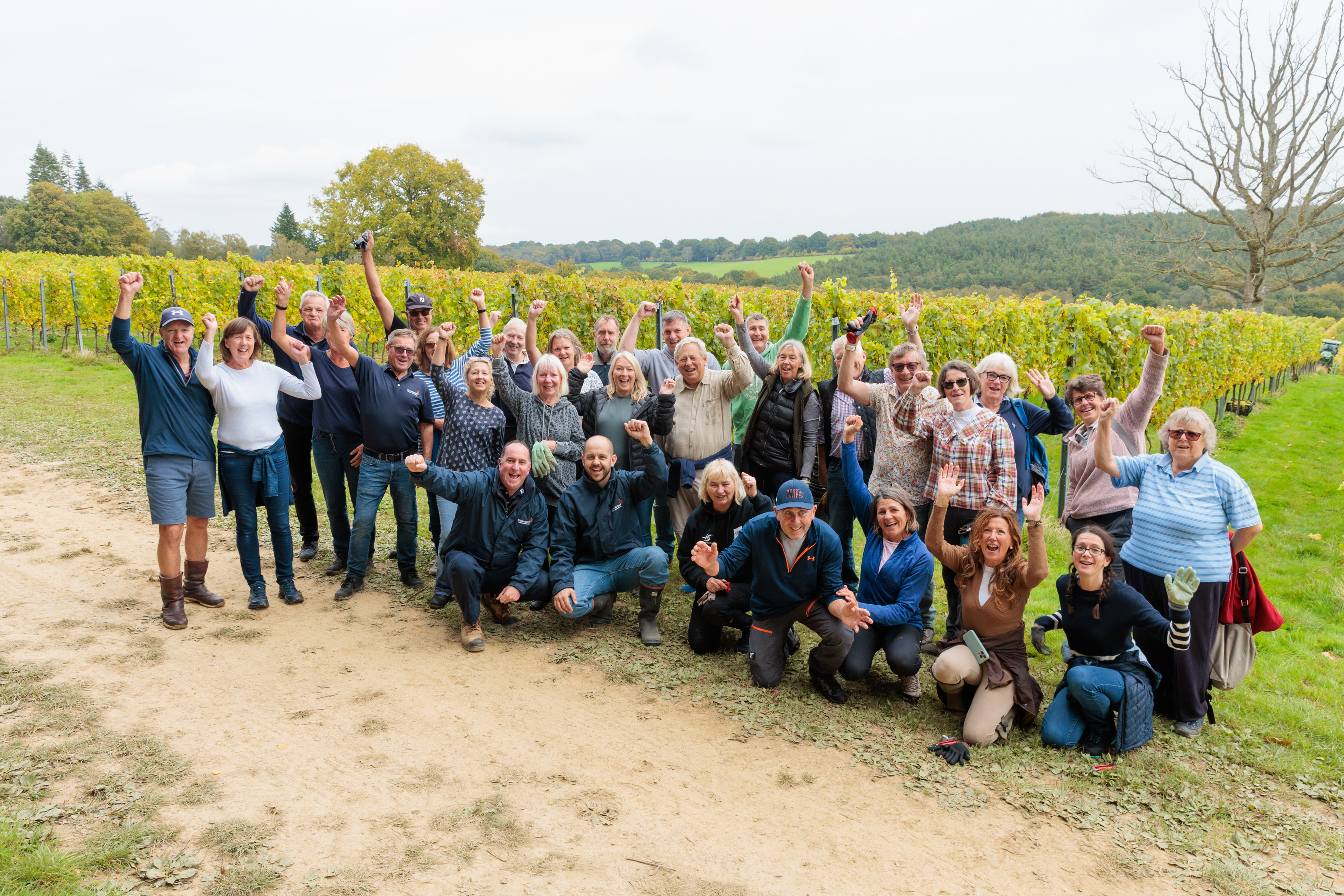
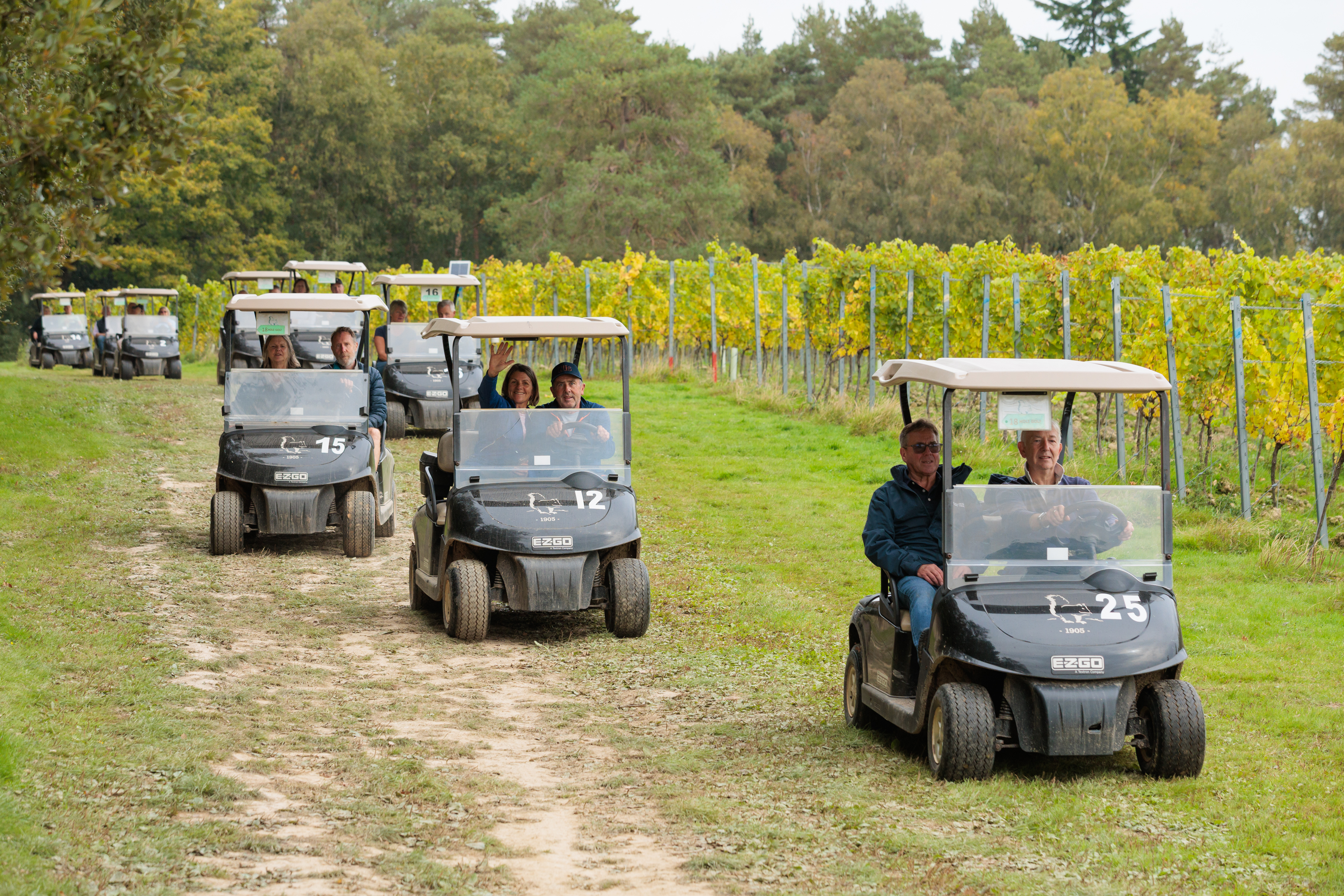
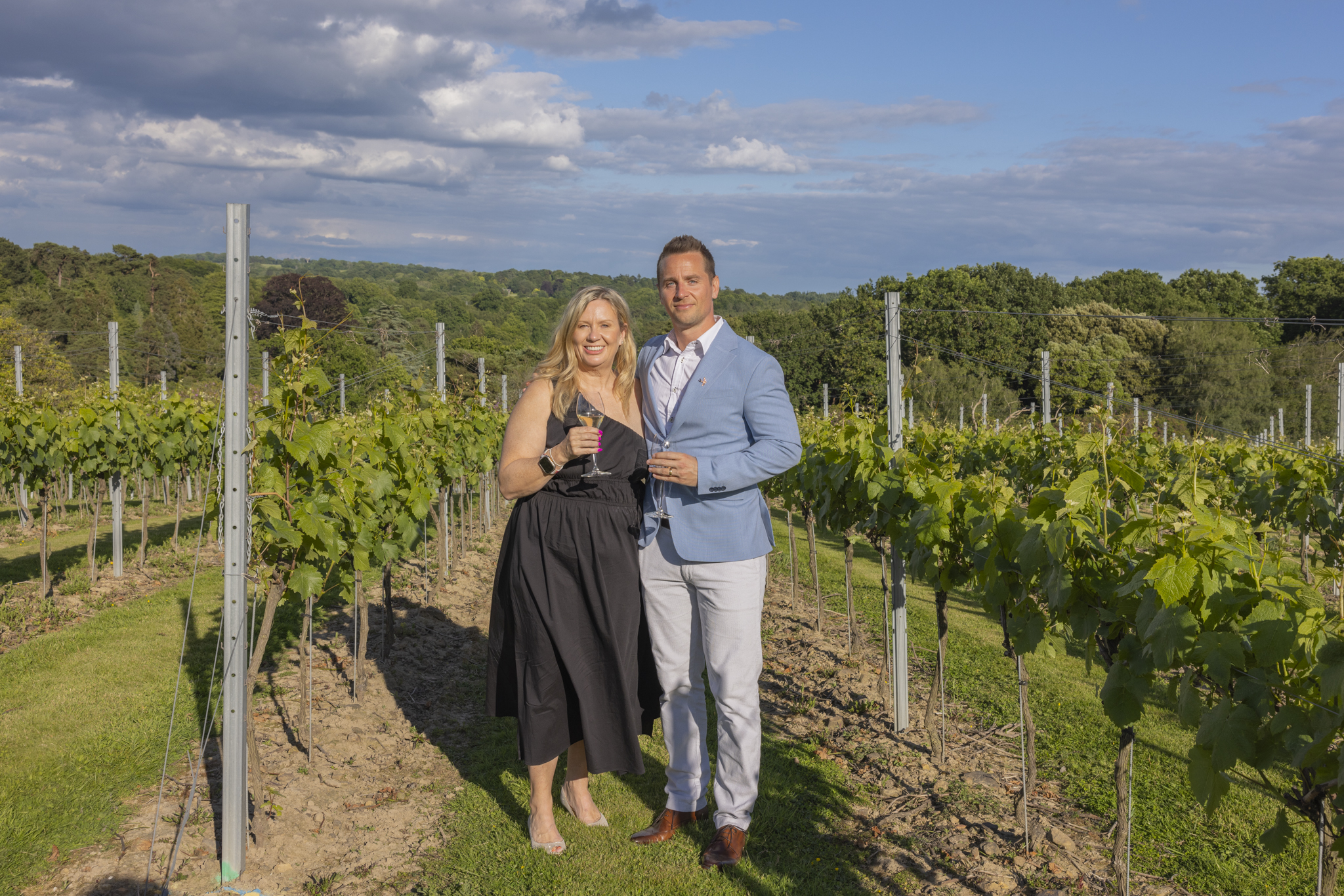
Photos: © Martin Apps, Countrywide Photographic
Trials and triumphs
Award winning winemaker Johann Fourie, Winemaker at Leonardslee Family Vineyards, spoke with Vineyard magazine to discuss the trials and triumphs of winemaking in Sussex.
You have been the winemaker at Leonardslee Family Vineyards from the beginning. How would you describe the experience?
Yes, it has been quite a journey and privilege to be part of. It all started with talks in 2015 which soon became action in 2016 when we identified the Sussex terroir as best suited for the style of sparkling wines we were looking to produce, and the property was acquired. Penny doesn’t let grass grow under her feet so in less than 6 months from acquiring Leonardslee the first wines were planted in 2017 with our maiden, small but beautiful crop in 2020. Fast forward to June 2024, many flights and phone calls, brand and label design meetings later we eventually released our first wines.
From the get go we always wanted Leonardslee wines to be made from 100% estate grown fruit so it has been a long wait but seeing it all come full circle and doing all this alongside an amazing team has been a proud and rewarding moment and arguably the highlight of my winemaking career.
What specific differences have you faced in the cool climate winemaking process compared to the wines that you make in South Africa?
Grape growing and winemaking in England and South Africa are as far apart as the two countries. It is a whole different set of rules and principles that apply, everything is upside down basically. In South Africa we seek cool slopes, ideally with some breezes to assist while in England we are looking for sheltered, warm slopes. In South Africa we are looking at ways to slow down ripening and maintain acidity. In England on the other hand questions arise regarding achieving more ripeness and balanced (lower) levels of acidity, be that with vineyard and/or cellar technique, to mention just a few. While the basics to winemaking apply it has been a real mind shift and an exciting learning curve.
What are you aiming to express in your English sparkling wines and how do you achieve this?
We are seeking a finessed house style built on elegance, purity and vibrancy. Wines with energy and drive. This bright, fresh, elegant but structured wine is what Sussex delivers and even more so via Chardonnay. I guess it comes as little surprise that Chardonnay is our signature grape and cornerstone across all our wines.
What is it about Chardonnay that works well on your site?
It is not really that we chose Chardonnay, it is more like Chardonnay chose us. Leonardslee’s Chardonnay from the get go stood out by giving us freshness, structure, citrus fruit aroma and of course the elegance we seek to achieve. Over the years Chardonnay has become more and more a focus with different clones and sites planted to it. Of course, Pinot Noir and Pinot Meneur are crucial for blending but looking ahead I think it is safe to label us the ‘Chardonnay specialists’.
What has been your most challenging vintage in the UK?
Probably 2021, coming off a dream growing season like 2020, and 2020 being our first year, myself and Barry thought growing and ripening a crop in the UK isn’t that hard. That was until 2021 came along, a challenging season that was only our second rodeo with some of the lowest number of degree growing days in recorded history. You learn most in those difficult years, a healthy crop and patience in the end paid off and looking at the 2021’s on bottle now they are looking so-so fine!
Is there a wine style you would like to experiment with at Leonardslee in the future?
Nothing new no, for now and the next 25 years it is taking a deep dive into learning and understanding our site, how to best go about each parcel in both the vineyard and cellar to perfect our style, bring out what is unique to Leonardslee and to maximise quality. To consistently improve, you have to always experiment and try different things but all these efforts will be aligned to perfecting the bubble, the teams’ vision and what we set out to achieve. Which is producing wines that are not only some of England’s finest but also wines with a sense of place.
Which is your favourite grape variety to work with and why?
Sounds like I’m on repeat but it has to be Chardonnay, for both sparkling and still. It is the queen of white grapes for a reason.
Ask me on another day in another place and I might tell you Cabernet Sauvignon.

